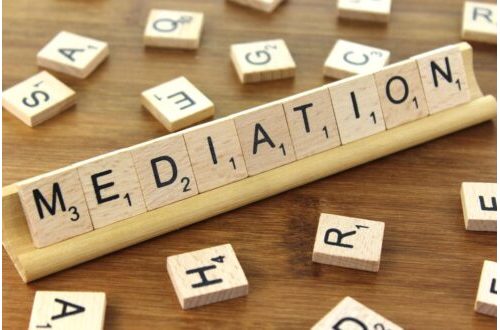The mediation process explained
What is mediation?
Mediation can help couples that are experiencing a family breakdown to make decisions about what should happen after their separation or divorce. Typically, these couples will want to decide on the future arrangements for any children they have and how their property, assets and liabilities should be divided between them.
Couples will usually attend mediation sessions together, either in person or remotely, although in some cases where it is appropriate, it can be arranged so that they are in separate rooms.
What is the role of the mediator?
The mediator will be familiar with the issues that are commonly associated with separation and divorce. They will manage the parties’ discussions and help guide them even-handedly by highlighting the different options available to help them make decisions. Mediators are trained to help couples evaluate the practical implications of those options they would like to consider.
The mediator must remain independent and neutral during the mediation process, and as such they cannot provide legal advice to couples. They can, however, help couples by facilitating an exchange of financial information and provide useful information to assist them in making their decisions. The mediator can also signpost where the couples can seek further help, such as financial planners specialising in finances or pensions; solicitors who can provide legal advice, and family consultants or parenting coordinators who can help them make decisions about the arrangements for their children.
The mediator can also discuss with couples whether it is likely that their decisions or proposed arrangements would have any legal implications.
What are the benefits of mediation?
Mediation is a voluntary process, unlike court proceedings, so one or both parties are free to withdraw at any stage. It is recommended, however, that those who attend mediation do so with the intention of fully engaging in the process.
Mediation is conducted at the pace set by the couple and driven by them. They set the agenda, rather than be told by solicitors or the court what this is. This allows them to focus on resolving the issues that are most important to them, whether that pertains to their future relationship with their children, their finances or the relationship breakdown itself.
Couples tend to find that mediation is more open and amicable as a process, compared to the traditional and, at times, adversarial litigation process. Provided that they engage in the process in the spirit of goodwill and are cooperative and open with each other, the potential for stress and anxiety is greatly reduced.
By attending mediation, the costs involved in divorce and separation have also been found to be considerably lower than using the court process or engaging solicitors at the outset.
What happens if mediation is successful?
In the event that mediation is successful, the mediator records the couple’s decisions or proposals in a document known as a Memorandum of Understanding and can set out details as to their financial information in an Open Summary of Financial Information. The couple will be encouraged by the mediator to seek legal advice on their decisions or proposals, along with formalising them, so that they can become legally binding.
At Tisshaws we have two trained mediators, Richard and Hana. For more information about mediation, please contact 01444 472700, email [email protected] or complete the form below.

Book a consultation to discuss your options –
Only £100 (Incl. VAT)
We know how difficult divorce and separation can be, so we offer an initial one hour fixed fee consultation with a fully qualified lawyer, to help you make an informed decision about how to proceed.
To book, please call 01444 472700 or complete the quick contact form.
